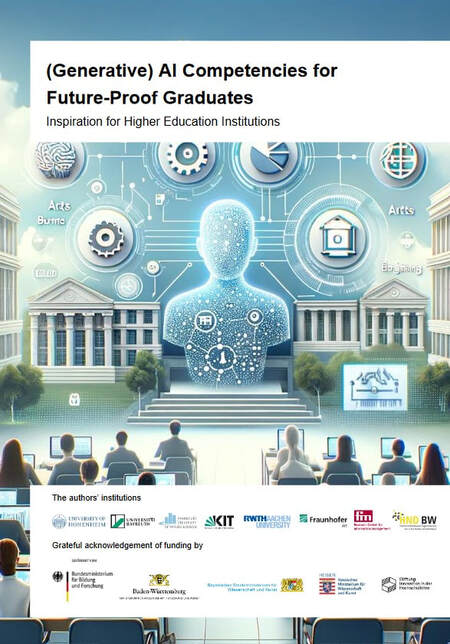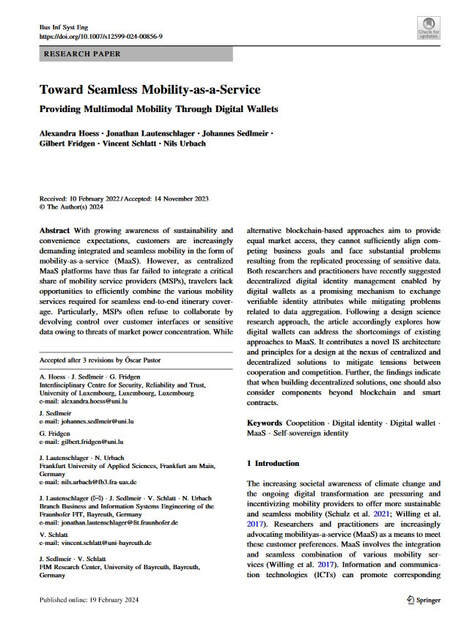|
The widespread use of Artificial Intelligence (AI) in various areas of professional and private life makes us thoroughly re-evaluate and update the competencies university students should acquire. This whitepaper focuses on what these changes mean for higher education, helping individuals responsible for curricular and extracurricular courses at higher education institutions integrate new competencies.
Competencies are a combination of skills, knowledge, and attitudes that enables a person to perform a task or an activity successfully in a specific context. Basic competencies such as literacy and numeracy are integral to a wide array of professions and in various aspects of daily life. Furthermore, this discourse extends to advanced competencies, such as training machine learning (ML) models or preparing annual financial statements, which are indispensable for certain specialized professions or tasks. Especially the advent of Generative AI (GenAI) is catalyzing a transformative shift in the landscape of competencies. While established overarching competency areas such as literacy or numeracy are likely to remain relevant, their significance is changing, with some areas increasing and others decreasing in relevance. At a more detailed level, specific knowledge areas, skills, and attitudes are becoming outdated as new ones emerge in response to evolving technological demands. In particular, new competency areas specifically related to AI, such as AI Management or AI Innovation, are emerging. In summary, the competency profiles required for success in the business world, society, and life are undergoing rapid changes, mirroring the swift pace of technological advancements in AI. Consequently, higher education institutions such as universities should reconsider their pedagogical approaches, considering a future deeply interwoven with AI technologies. Students, in turn, should plan their educational trajectories to align with this AI-shaped future. Given the constrained scope and duration of higher education degree programs, it is important to utilize these resources in a manner that is both goal-oriented and efficient. As the objectives regarding competencies evolve, there is a corresponding necessity for transforming both teaching offers and learning opportunities. Our recently published whitepaper motivates the topic and emphasizes the relevance of AI as a general-purpose technology in sections 1 and 2. Readers familiar with AI might want to skip these preliminaries. Section 3 details basic and advanced competencies, shifting relevance, and novelties due to AI. Section 4 poses nine key questions for higher education institutions to answer regarding their current and future teaching with the omnipresence of AI. Section 5 presents examples of AI competency models and their integration into teaching and learning from three different universities. Sections 3 to 5 are the core of this whitepaper and shall inform and inspire the debate about AI competencies in higher education. Section 6 is a brief conclusion. With growing awareness of sustainability and convenience expectations, customers are increasingly demanding integrated and seamless mobility in the form of mobility-as-a-service (MaaS). However, as centralized MaaS platforms have thus far failed to integrate a critical share of mobility service providers (MSPs), travelers lack opportunities to efficiently combine the various mobility services required for seamless end-to-end itinerary coverage. Particularly, MSPs often refuse to collaborate by devolving control over customer interfaces or sensitive data owing to threats of market power concentration.
While alternative blockchain-based approaches aim to provide equal market access, they cannot sufficiently align competing business goals and face substantial problems resulting from the replicated processing of sensitive data. Both researchers and practitioners have recently suggested decentralized digital identity management enabled by digital wallets as a promising mechanism to exchange verifiable identity attributes while mitigating problems related to data aggregation. Following a design science research approach, we explored how digital wallets can address the shortcomings of existing approaches to MaaS. We contribute a novel IS architecture and principles for a design at the nexus of centralized and decentralized solutions to mitigate tensions between cooperation and competition. Further, our findings indicate that when building decentralized solutions, one should also consider components beyond blockchain and smart contracts. Please read more about our research in our latest paper published in Business & Information Systems Engineering. |
Archives
June 2024
|


 RSS Feed
RSS Feed